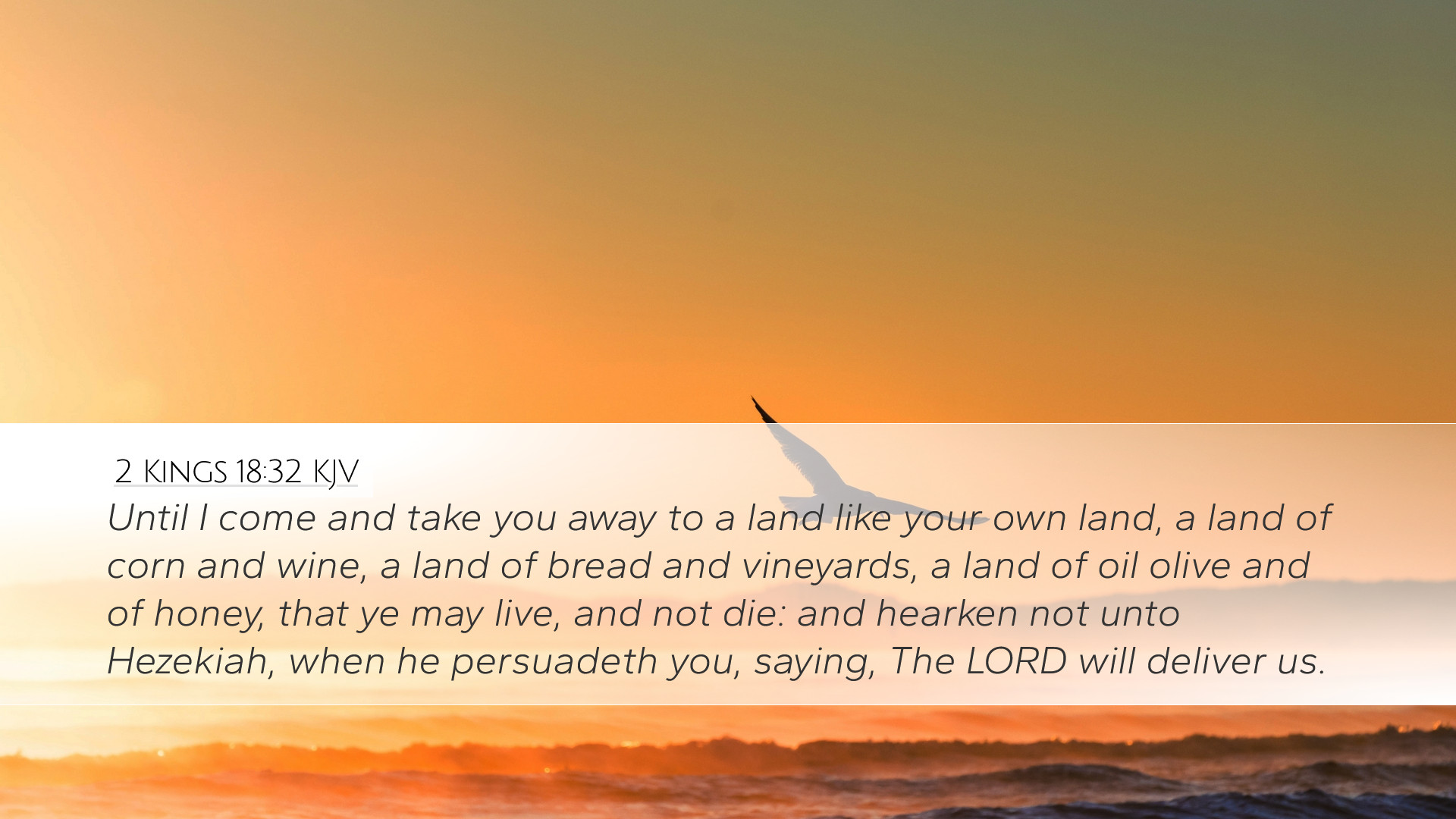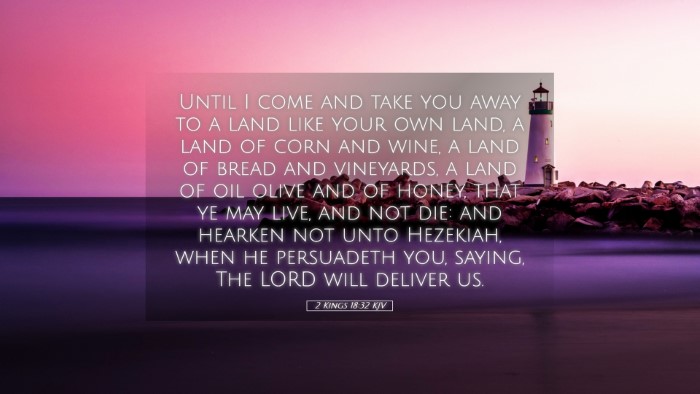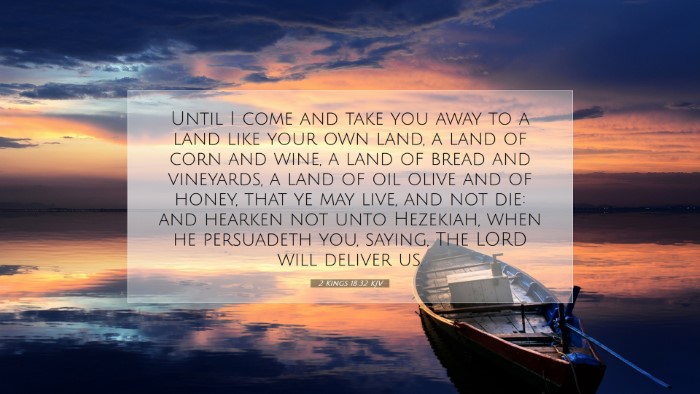Commentary on 2 Kings 18:32
Verse: "Until I come and take you away to a land like your own, a land of grain and new wine, a land of bread and vineyards." (2 Kings 18:32)
Introduction
The verse under consideration occurs within a dramatic narrative of the Assyrian invasion during the reign of King Hezekiah of Judah. The Assyrian king sends his representatives to deliver a message that intimidates the people of Judah and questions their faith in God. This commentary seeks to elucidate the theological and historical implications of this verse, drawing insights from respected public domain commentaries.
Contextual Background
Before diving into the specifics of 2 Kings 18:32, it is essential to understand the broader biblical context. The Assyrian Empire was known for its brutal conquests and was the dominant power in the region. Hezekiah, who reigned in Judah, was known for his religious reforms and efforts to purify the worship of Yahweh. The confrontation recorded in this chapter is a significant moment that tests the faith and resolve of God’s people.
Historical Context
Matthew Henry notes the perilous times faced by Judah. The Assyrian envoy, Rabshakeh, speaks to the people from the wall of Jerusalem, trying to sway them with promises of security and sustenance in exile if they surrender. This tactic of undermining faith is critical in understanding the psychological warfare employed by Assyria.
Theological Implications
The promise of a land “like your own” is particularly noteworthy. Adam Clarke highlights the Assyrian's deceitful allure of comfort and security, suggesting that their promises are empty and aimed at dissuading the people from relying on God. This reflects a broader theological theme: the recurring temptation to forsake divine trust for human security.
Understanding the Land of Grain and Wine
- Symbolism of Abundance: The mention of grain and new wine speaks to agriculture, prosperity, and sustenance—elements critical in an ancient agrarian society. Clarke emphasizes that such imagery reflects the abundance that God had promised Israel.
- Contrast with God’s Promises: While the Assyrians promise a land of abundance, true abundance is found in the covenant faithfulness of God. Henry remarks on how God had already provided a land flowing with milk and honey, an ever-present reminder of His promises to the patriarchs.
The Nature of Exile
The reference to being taken away to another land can be interpreted as a foreshadowing of the eventual exile of Judah due to their disobedience. Barnes points out that the Assyrians not only sought to conquer but to assimilate Judah into their empire, stripping them of their identity as God’s chosen people. This evaluation of exile serves as a divine warning against reliance on worldly powers over divine providence.
Faith versus Fear
This passage reflects a pivotal moment in the struggle between faith and fear. Henry emphasizes that the words of the Assyrian envoy were crafted to instill fear and doubt among the people. Yet, the faith of Hezekiah and the people of Judah would ultimately be tested. It is a reminder that faith, often faced with intimidation, can lead to divine deliverance.
Call to Reflection
The commentary on this verse leads to several poignant reflections for today’s readers, particularly pastors and theologians:
- Trust in God's Provision: The provisions from God far surpass any human offer. Believers are urged to trust in God’s promises, as He is the ultimate source of true abundance.
- Evaluating Assurances: Like the people of Judah, modern believers must discern between genuine divine promises and alluring worldly assurances, often cloaked in deceit.
- Resilience in Faith: The narrative encourages resilience in the face of trials, showing that true stability comes from a steadfast relationship with God.
Conclusion
2 Kings 18:32 serves as a vivid reminder of the complexities faced by God’s people throughout history. The tension between divine promise and human intimidation rings true across generations. Reflecting upon the insights from Henry, Clarke, and Barnes, modern readers are reminded of the foundational truths of faith, the consequences of turning away from divine trust, and the importance of nurturing a deep, unwavering relationship with God, who remains our true sustainer in times of distress.


